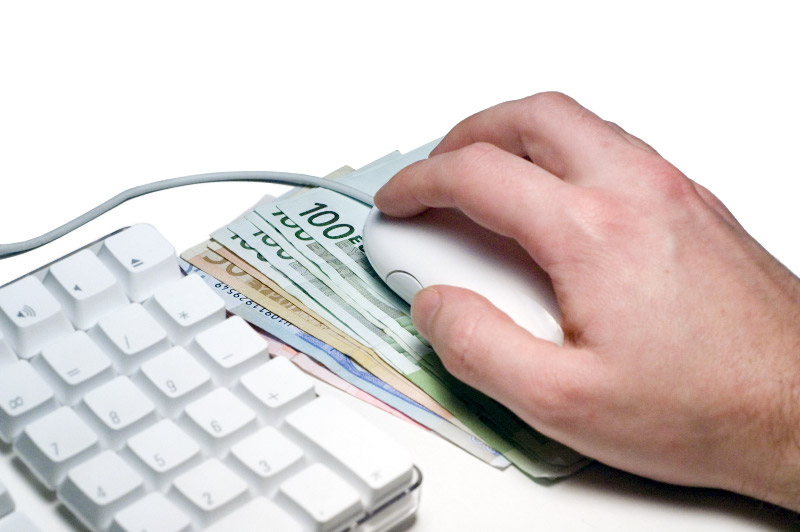Internet banking has grown to become THE tool to use in the banking sector, a fact proven by the 52.6% growth Key Note UK estimates between 2008 and 2017. Through this feature, you can use your smartphone or computer to access your bank account and carry out numerous transactions including making transfers and paying bills. As a result, not only is handling your finances easier, but you may pay less to the bank since it will be saving on major expenses like mailing costs. However, as in the case with most online services, the safety of internet banking is always questioned.

If you use internet banking services or intend to sign up for them soon, you need to keep the following five safety measures in mind to protect your money and personal information.
Tip #1) Don’t Use More than One Device to Access Your Account
In order to avoid having your account information stolen, you need to use only one dedicated computer for accessing your account. Your smartphone may be convenient, but you should avoid using it since it’s easier to steal. So, limit your online transactions to one computer and make sure that it has up-to-date firewalls and virus scans to prevent hackers and worms from wreaking havoc. You may also want to keep your spouse and children off that computer since they may not be as wary as you are and may end up sharing your information unintentionally.
Tip #2) Only Use a Secure Internet Connection
With Wi-Fi access available in most buildings, you may be tempted to avail that service rather than use your own internet connection. However, whatever money you think you’re saving may end up in the wrong hands if you’re not careful. This is because hackers can easily intercept the signals and collect your account information. So, don’t use public Wi-Fi and make sure that your internet connection is properly secured.
Tip #3) Clear Your Cache to Protect Your Cash
By definition, cache is a component where regularly used data is stored to make requests for that data quicker in the future. If you regularly use internet banking, you can rest assured that your computer’s cache has all your account information. Therefore, after signing out of your account, you should always clear your browser’s cache. To complement this process, you should also consider deleting your browser history just in case. Browsers like Google Chrome allow you to select which pages you want to delete, therefore you won’t have to worry about losing all of your browsing history.
Tip #4) Go for the Virtual Keyboard Option
Though pressing familiar keys on your conventional keyboard is easier, clicking on a virtual keyboard will ensure your safety more. This is because certain worms can store your keyboard strokes and later send them to their creators to try and gain access into your account. As most banks offer the virtual keyboard option, you shouldn’t think twice before availing it for your safety.
Tip #5) Be Wary of the Little Details
There are numerous opportunities for hackers to access your account information. Therefore, if you want to avoid these devious ploys, you need to make sure of the following:
Look for the lock icon on your browser. This icon indicates that you’re using a secure website. Another feature of secure websites is the “https” prefix at the beginning of the URL.
Always use a 128-bit encrypted web browser to ensure that your data is safe. Examples of such browsers include Internet Explorer 8, Apple Safari 2.0+, and Firefox 3.5.
If your session doesn’t timeout despite you being inactive, sign out immediately and report this to your bank. Its IT department will have the technology to investigate your complaint and make sure that your account is secure.
Check your account regularly to make sure that no suspicious transactions are taking place. If you notice any suspicious activity, report it to the bank immediately so that you won’t be held liable.
These are the five main tips you should implement while carrying out internet banking transactions. In addition to these, you can use any logical measures you believe can help keep your data and money protected. However, always remember that hackers and virtual thieves tend to be one step ahead, so don’t take the slightest chance with your bank account and its details.
About the Author: Dmitri Blackthorn is a tech-savvy blogger who loves writing about online security issues, security services, computer software, SEO and social media. Dmitri is a part of DDoS mitigation service Stop-DDoS.net and you can contact him via Facebook.

